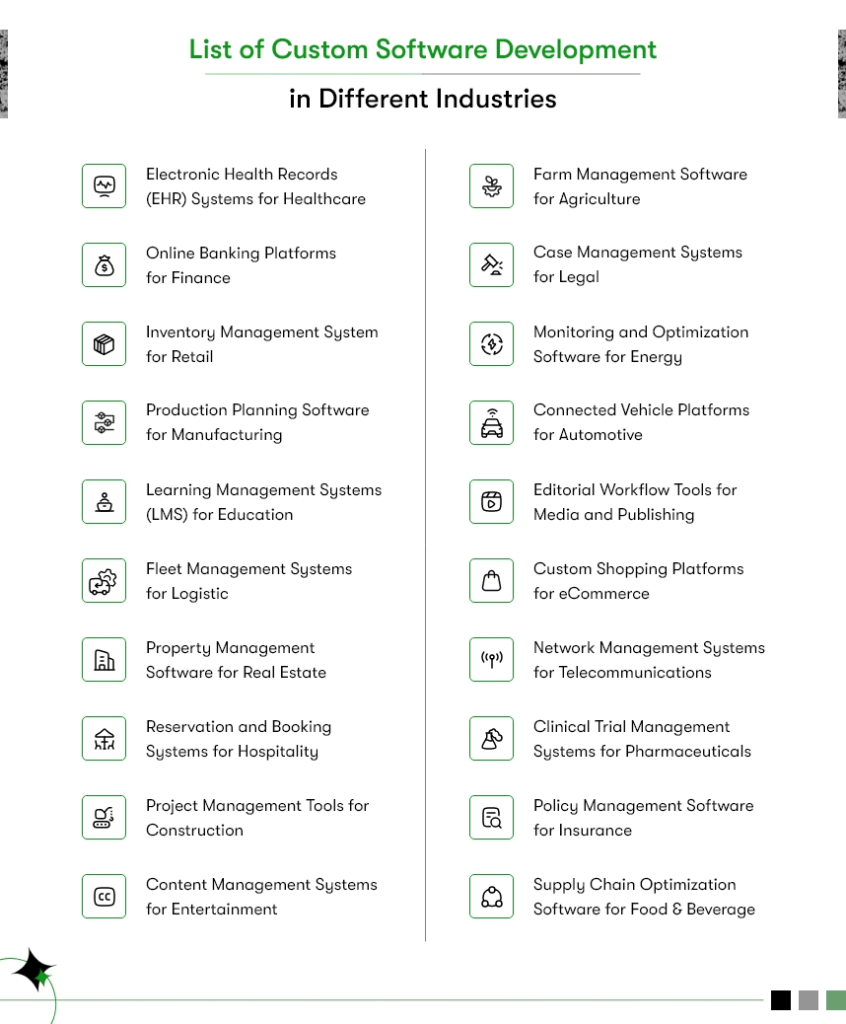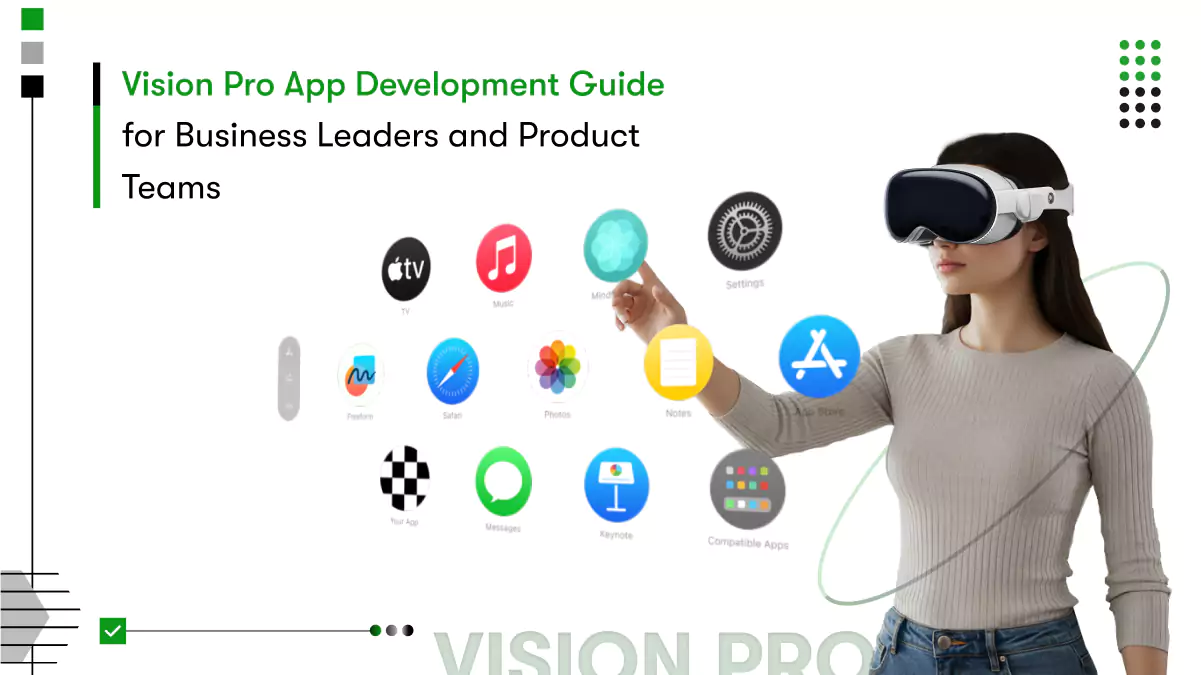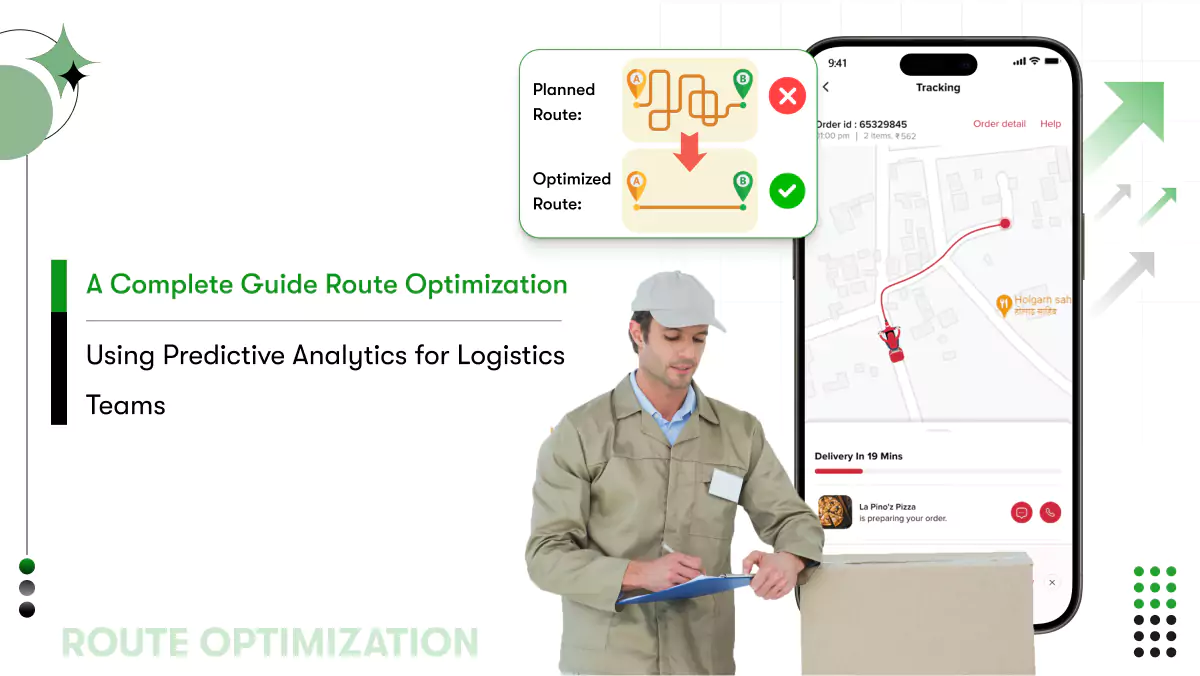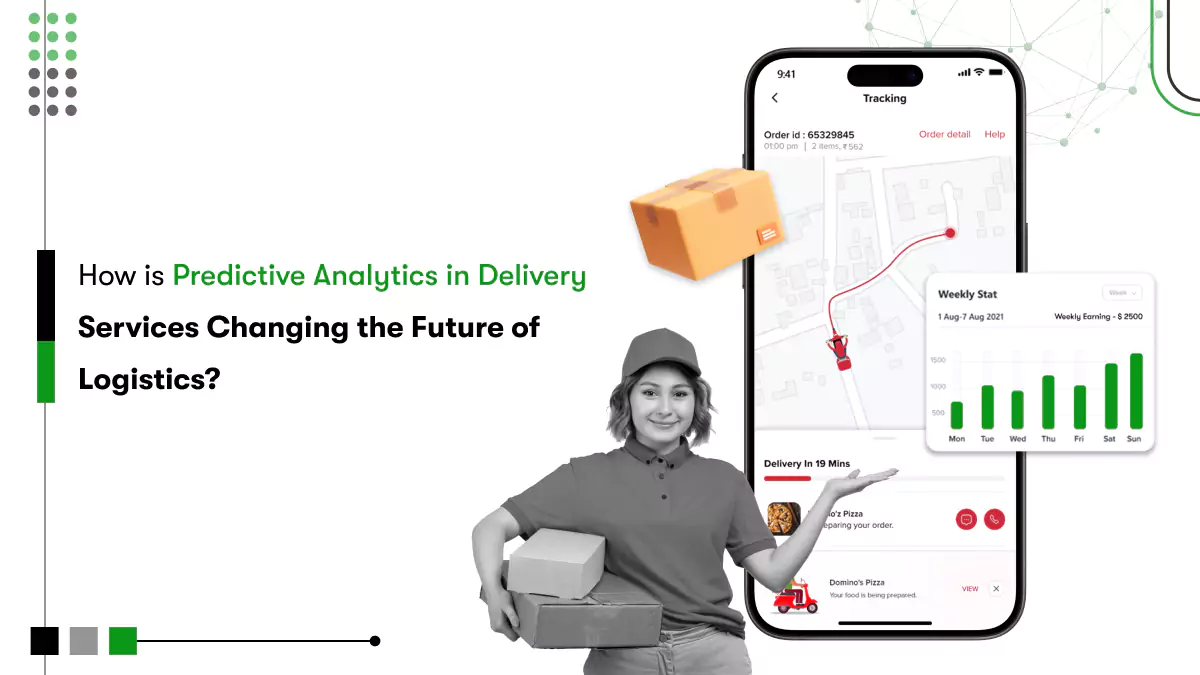The reason why modern industries have succeeded has much to do with the efficiency of custom software development because it can provide businesses with a modified solution according to their precise operational requirements.
Industry-specific software maximizes efficiency, decreases costs, and promotes greater customer satisfaction.
This blog will discuss the industries that maximize advantage from such industries-to-specific custom software, along with real-life instances as evidence that such industry-specific custom software development enhances operations and affords competitive advantage.
What is Custom Software Development?
Custom software development refers to the process of designing, building, and maintaining software tailored to meet the specific needs and requirements of a particular business, organization, or user group. Unlike off-the-shelf software, custom software is uniquely crafted to address a company’s distinct processes, goals, and challenges.
Its phases could be consulting, prototyping, development, testing, deployment, and support. Companies use the method for a cut in some processes while enhancing productivity, with regard to bringing to customers’ actual “warm” services. To dive deeper into the stages and best practices for creating tailored software solutions, check out our detailed Custom Software Development Guide.
You can develop custom software from scratch or customized extensively, unlike industry-specific software that may have generic features applicable across various sectors. For instance, while general software may offer generic customer relationship management (CRM) tools, you can tailor a custom CRM system to serve the exact needs of your particular industry, be it healthcare, manufacturing, or finance.
Why develop Industry-Specific Custom Software?
Every industry has its specific requirements, which you may not accomplish by standardized applications. Custom software is developed with industry-specific needs of an industry as well as stringent regulatory requirements of the industry. To illustrate, healthcare providers usually require that the software they use must be HIPAA compliant. On the other hand, financial institutions require that the software have rigorous security standards.
The main driving forces behind custom software development are continuous emphasis on higher operational efficiency and personalized customer experience in industry-specific applications. Generally, the approach taken to different industries helps companies optimize workflows, save costs, and obtain a competitive advantage. Additionally, custom software reduces reliance on third-party applications, providing greater control over the business processes and data.
What are the Key Advantages of Custom Software Development?
Off-the-shelf software can be useful for many basic functions, but when it comes to meeting the specific needs of different industries, the benefits of custom software development are far greater. Industry-specific custom software is tailored to fit the exact demands of a business, making it a powerful tool for boosting productivity, improving customer experiences, and optimizing processes.
Here’s a closer look at the advantages of custom software development, particularly for industry-specific applications:
Tailored to Unique Business Needs
Industry-specific custom software differs from off-the-shelf software since you design industry-specific software with a target understanding of your business. Off-the-shelf solutions are for a large audience; consequently, some ready-to-use software includes features you might not need and lack ones that you need.
In contrast, custom software ensures every aspect of the software addresses the specific pain points and operational demands of your business in the industry-specific context of custom software.
Scalability and Flexibility
Furthermore, custom software is not only designed for your company’s present needs but also develops along with the growth of your business. When your company expands, off-the-shelf solutions soon outgrow-there could be the user base, the capacity to handle more users, or the functionalities.
You can develop this scalability at the outset with custom software. Suppose your business industry is known to have fast updates in terms of technological and regulatory requirements. In that case, you can adapt to such changes with the help of custom software so that your system remains applicable and effective in the future.
Enhanced Security Features
Security is a great concern to any business in today’s day and age. Especially to businesses that handle sensitive information involved in healthcare, finance, or legal services. Standard software solutions inherently have general security protocols built in. Also, such software can be more susceptible to attack because hackers know their structure and common vulnerabilities.
Customizing software allows you to focus on industry-specific security procedures that could differ from others in the industry. Or have the same authority as others protecting the specific kind of data that is critical to your business.
Improved Efficiency and Productivity
Custom software makes it possible for the business to handle streamlining the operations and enhancing productivity through automation of operations and reduction of manual labor. Since custom software is usually specifically industry-based, there is minimal need to deal with complex integrations or time-consuming manual processes, and it smoothens the workflow of the company to an extent that is nearly imperceptible. This in turn naturally leads to better user experience because employees are free to engage in more valuable activities.
Competitive Advantage
The greatest benefit of industry-specific custom software is the competitive advantage. Your competitors aren’t able to have access to the same tools or features. The custom software by your company optimizes your processes and enhances your offerings in ways you alone offer within that industry.
Better Integration with Existing Systems
More critical with off-the-shelf solutions is that they usually demand a business process change or adaptation to the limitations of the software. Custom software, however, is easy to integrate into and around your existing infrastructure-in this case, the ERP systems, the CRM platforms, and data management solutions.
The importance of having integration capability is particularly very important for industries that rely on logistics as it ensures smooth business operations through the unobstructed flow of data from one system to another.
Long-Term Cost Savings
Although custom software development requires an initial investment, it can result in long-term cost savings for businesses, particularly in industries that require unique solutions. Off-the-shelf software usually involves ongoing subscription fees and periodic costs for upgrades or additional licenses. Custom software, on the other hand, offers a one-time development cost with flexibility for incremental updates as needed.
Enhanced Customer Experience
Custom software allows businesses to enhance the customer experience by providing tools and interfaces that directly address customer needs. In industries like retail, finance, and healthcare, this is particularly valuable. For instance, you can develop custom software for retail to provide a personalized shopping experience, with recommendations based on a customer’s purchase history or preferences.
In healthcare, custom patient management software can streamline appointment scheduling, improve communication with healthcare providers, and ensure that patient records are easily accessible when needed.
Examples of Custom Software Development in Different Industries

Custom software development process has now become the backbone of businesses, which hope to be more efficient and operationally smoother by staying ahead in the competition. Off the shelf products versus customarily crafted, which precisely addresses the needs of a particular business or even an industry, results in perfect alignment with processes. It alleviates specific challenges as it is designed to grow with your growing business.
Let’s delve into industry-specific custom software examples across various sectors, highlighting how bespoke solutions drive innovation and operational excellence.
1. Electronic Health Records (EHR) Systems for Healthcare
In the health service industry, information regarding the patients has to be handled efficiently. Custom EHR systems are established with specific requirements related to healthcare providers to make patient records and appointments easy to access and billing-related services within reach. It maintains the needs of healthcare regulations and puts more emphasis on patient care, as it maintains precise and updated information.
For example, a hospital may develop a custom EHR system that would work in conjunction with the existing laboratory and radiology systems, through which the hospital can access test results and imaging studies within the digital record of the patient. This helps to minimize errors and increase the efficiency of diagnosis and treatment.
2. Online Banking Platforms for Finance
Custom online banking is a must for the financial industry today regarding transactions and customer interaction. Services offered by custom online banking platforms are tailored to individual customers. Such services include account management, transferring funds, and other sophisticated planning tools. There is a focus on security and experience, thus integrating the elements of trust and satisfaction towards customers.
For instance, a bank might build a custom mobile banking app with features like biometric authentication, user-specific financial advice, and real-time fraud-detection alerts to offer customers a safe and facile banking experience.
3. Inventory Management Systems for Retail
In most retail businesses, the primary challenge lies in managing stock at multiple locations. In this context, it is common to develop customized inventory management systems to track the stock level, manage orders, and predict future demand based on past data. Custom software can help retailers avoid overstocking or selling out, optimize supply chains, and deliver better customer satisfaction.
For example, a retailer might have a customized inventory control system that ties with its POS computers, giving the retailer real-time inventory levels and automatically ordering the product once the threshold is reached for less than the available amount of stock.
4. Production Planning Software for Manufacturing
Manufacturers need to plan to manage and optimize their production schedule and resource utilization. The production planning software helps the manufacturers to streamline their workflow, keep an eye on equipment usage, and predict the possible maintenance requirement. This leads to productivity, a reduction in downtime, and cost savings.
For example, a manufacturing company could develop custom software that analyzes production data to identify bottlenecks and suggest adjustments in the production line, thereby improving throughput and reducing waste.
5. Learning Management Systems (LMS) for Education
One of the benefits of having a custom LMS would be in course management, student assessments, and teachers reaching out to the learners. It would support several learning methodologies and integrate other education tools, thereby making the overall learning experience better.
For example, a university would create a customized LMS to promote blended learning without hassle, allowing web-based access of courseware, online dissemination of concerns with the instructor, and uploading of assignments. That custom-designed LMS should be interoperable with the student information system already in place in the institution.
6. Fleet Management Systems for Logistic
Traditionally, logistics companies require full fleet management to ensure timely delivery with a minimum route. Custom fleet management systems provide real-time tracking, route optimization, and maintenance scheduling to aid in the reduction of fuel costs, improvement of deliveries, and high customer satisfaction.
For example, a logistics company can develop customized software integrating GPS tracking with traffic data so as to provide a driver with the most efficient routes available for the job, reducing both the delivery time and the fuel consumption.
7. Custom Shopping Platforms for eCommerce
eCommerce businesses create remarkable returns and sustain themselves by providing extraordinary personal experiences in shopping. Custom shopping platforms allow for an abundance of feature choices, such as real-time dynamic pricing, AI-driven recommendations, and streamlined checkout processes.
For example, an e-retailer company might develop a custom eCommerce platform that integrates with an inventory system, uses AI for product suggestion based on browsing history, and provides multiple payment options to offer seamless shopping experiences to customers.
8. Property Management Software for Real Estate
Real estate companies deal with hundreds of properties, tenants, and maintenance requests. Custom-made property management software will streamline all those processes by integrating various lease tracking, tenant communication portals, and maintenance scheduling. It translates to an improvement in the tenants’ satisfaction and efficient property management.
For example, a property management company may initiate customized software for tenants to send in maintenance requests online. The status of a particular request can be tracked, allowing direct communication between the tenants and property managers toward enhanced transparency and responsiveness.

9. Reservation and Booking Systems for Hospitality
A reservation and booking system constitute the blood of any hospitality-related venture. The availability of customized solutions that can interface with property management systems, create dynamic pricing, and further individualized guest experiences assists hotels and resorts in managing bookings, increasing occupancy levels, and achieving greater guest satisfaction.
For example, a hotel chain might create specific booking interfaces that not only provide some personalization of room recommendations using a guest’s previous stays and preferences, but they also provide optimal connectivity with their loyalty program.
10. Project Management Tools for Construction
Construction projects already have various complications and require coordination among several stakeholders. These tools, therefore, come customized for scheduling, resource allocation, budget tracking, and collaboration. Projects become more efficient in terms of meeting the time and budget.
For example, a construction company could use custom software that interoperates with BIM; thereby, the project managers could clearly get how the whole project is going about and identify potential issues as well as coordinate better with subcontractors.
11. Content Management Systems for Entertainment
Entertainment companies usually deal with heavy digital content, such as video, music, and articles. Custom CMS supports the efficient organizing, distribution, and monetizing of content. These systems can therefore be customized to accommodate these media formats and integrate into platforms for distribution.
For example, a custom CMS for a streaming service could take content categorization into account according to user preference or support multiple languages and analytics tools to measure viewer engagement with that content.
12. Farm Management Software for Agriculture
The custom management system for farms monitors the health of the crops, also irrigates farmland, and maintains equipment to keep the agriculture sector going. When integrating AI, the systems can utilize data analytics to achieve yield optimization, waste reduction, and sustainability.
For example, a farming cooperative might utilize customized software that collects data from IoT sensors installed in fields to monitor the moisture levels of the soil. So, the farmers will be informed in real-time and be given the best irrigation practices.
13. Case Management Systems for Legal
Law firms handle a lot of cases, documents, and client communications. Information management systems facilitate these processes by providing secure document management, organization, and communication tools designed for the unique work processes of legal professionals and thus increase efficiency, efficiency, and client satisfaction.
For example, a law firm can create a custom case management system that integrates with legal analytics tools, tracks timelines, and automates billing. This system can also include secure client portals, which allow clients to upload documents and communicate directly with their legal representatives.
14. Monitoring and Optimization Software for Energy
The energy industry needs accurate and efficient monitoring tools to improve resource management and reduce operating costs. Hence, custom energy management software can help monitor usage, monitor equipment performance, and determine when maintenance is needed, ensuring efficiency and durability.
For example, a company in the renewable energy sector may design specialized software to monitor the performance of solar panels and wind turbines in real time. Using sensor data, the system can monitor inefficiencies, plan when maintenance needs to be done and maximize output.
15. Connected Vehicle Platforms for Automotive
In the near horizon for the automotive industry, connected technologies will prevail. Custom software platforms in vehicles allow manufacturers to include smart features like real-time navigation, predictive maintenance alerts, and integration with any mobile app.
For example, an auto company can design a customized application that could let automobile owners start the car remotely, view the car’s fuel efficiency levels, and set up reminders for scheduled maintenance to provide better user convenience.
16. Editorial Workflow Tools for Media and Publishing
Media publishing companies often deal with meeting tight deadlines and complex content workflows. Customized editorial workflow tools stream the content creation, editing, and publishing process, which serves to increase efficiency and deliver on time.
For example, a publishing house may custom-build software to automate content approvals, track revisions, and integrate with the digital publishing systems to make sure collaboration remains frictionless between writers, editors, and designers.
17. Network Management Systems for Telecommunications
Telecommunications firms require advanced network management techniques to oversee large networks and ensure constant service quality. Customized network management system helps monitor network performance, identify outages, and optimize resource consumption.
For example, a telecom company might develop custom software to track its network in real time, predict potential network failures using AI, and dynamically allocate resources to maintain service quality.
18. Clinical Trial Management Systems for Pharmaceuticals
Large pharmaceutical companies carry out clinical trials on a large scale before bringing a new drug to the market. Streamlined customized clinical management systems can help them manage the process design, recruitment of participants, data gathering, and regulation.
For example, a pharmaceutical company will create custom-made software to automate the recruitment of patients, track real-time progress of the trial, and analyze results to gain maximum efficiency and compliance with the regulation.
19. Policy Management Software for Insurance
Insurance companies handle vast amounts of data related to policies, claims, and customer interactions. Custom policy management software simplifies these processes by automating workflows, enabling quick claim processing, and providing personalized customer service.
For example, an insurance provider might develop custom insurance software that allows customers to file claims online, track claim status, and receive personalized policy recommendations based on their profiles.
20. Supply Chain Optimization Software for Food and Beverage
In the food and beverage industry, efficient supply chain management assists in maintaining freshness and reducing waste. Custom supply chain optimization software ensures accurate tracking of shipments, inventory management, and demand forecasting.
For example, a restaurant chain may create customized software for tracking the performance of suppliers to the restaurant, tracking food inventory, and predicting ingredient needs based on historical sales data. Thereby reducing waste and allowing for quality at every point in time.
Conclusion
Tech trends in custom software development have transformed many industries, replete with solutions specifically attuned to unique requirements of operations. This can result in the efficiency, accuracy, and customer satisfaction found in these businesses. From the medical field to legal affairs, industry-specific software increases productivity and delivers competitive advantage.
In custom software development, the flexibility and scalability of such software that off-the-shelf software cannot offer put companies on the path towards sustainable growth and innovation. Whether it is data management, compliance, customer relationship management, or process automation, customized solutions are a strategic asset in today’s complicated business landscape.
Hire Kody Technolab for Custom Software Development
Kody Technolab Ltd is a custom software development company that has been creating state-of-the-art, customized software solutions across various industries. With a team of accomplished developers, Kody creates software that meets the requirements and objectives of your business while simplifying operations in line with booming technologies of the present times. These solutions are designed to be strong, scalable, and future proof.
We are best known for designing niche-specific customized software that meets the challenges and needs of each industry. From eCommerce, healthcare, real estate, or even manufacturing, Kody Technolab creates solutions that maximize your efficiency and profitability.
As far as the custom software development partner is concerned, Kody Technolab Ltd is always responsible for combining technical expertise, industry-specific knowledge, and a commitment to client success. From day one, businesses have always succeeded by adding innovative, high-quality, and tailored solutions to their firm to drive growth and efficiency. You can transform your operations and stay ahead in the market with the right partner; look no further than Kody Technolab.












 Contact Information
Contact Information